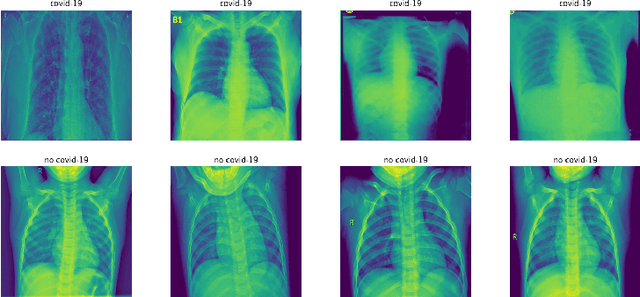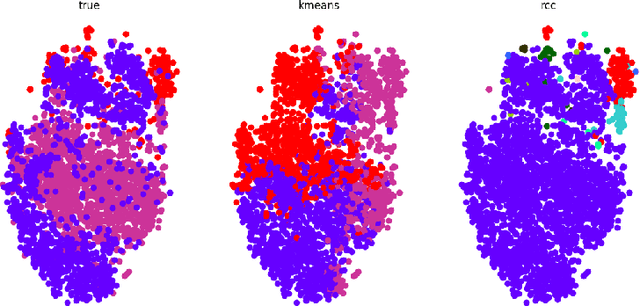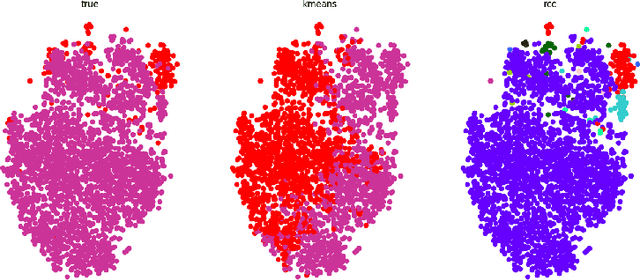Andrew Householder
Clustering COVID-19 Lung Scans
Sep 05, 2020



Abstract:With the recent outbreak of COVID-19, creating a means to stop it's spread and eventually develop a vaccine are the most important and challenging tasks that the scientific community is facing right now. The first step towards these goals is to correctly identify a patient that is infected with the virus. Our group applied an unsupervised machine learning technique to identify COVID-19 cases. This is an important topic as COVID-19 is a novel disease currently being studied in detail and our methodology has the potential to reveal important differences between it and other viral pneumonia. This could then, in turn, enable doctors to more confidently help each patient. Our experiments utilize Principal Component Analysis (PCA), t-distributed Stochastic Neighbor Embedding (t-SNE), and the recently developed Robust Continuous Clustering algorithm (RCC). We display the performance of RCC in identifying COVID-19 patients and its ability to compete with other unsupervised algorithms, namely K-Means++ (KM++). Using a COVID-19 Radiography dataset, we found that RCC outperformed KM++; we used the Adjusted Mutual Information Score (AMI) in order to measure the effectiveness of both algorithms. The AMI for the two and three class cases of KM++ were 0.0250 and 0.054, respectively. In comparison, RCC scored 0.5044 in the two class case and 0.267 in the three class case, clearly showing RCC as the superior algorithm. This not only opens new possible applications of RCC, but it could potentially aid in the creation of a new tool for COVID-19 identification.
 Add to Chrome
Add to Chrome Add to Firefox
Add to Firefox Add to Edge
Add to Edge